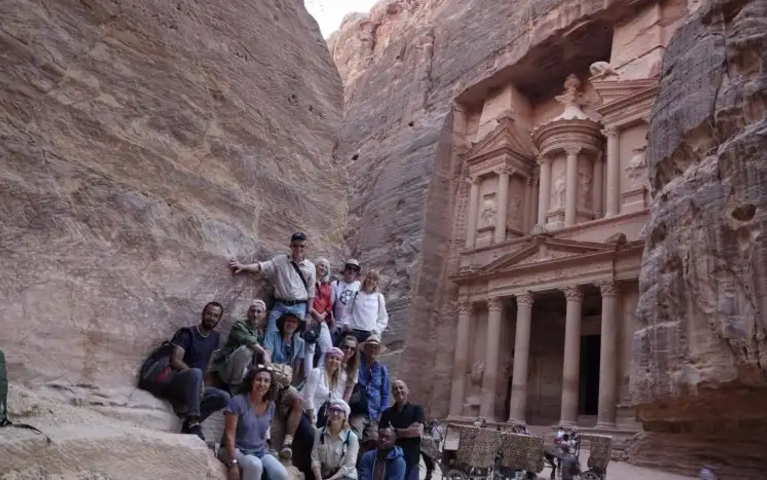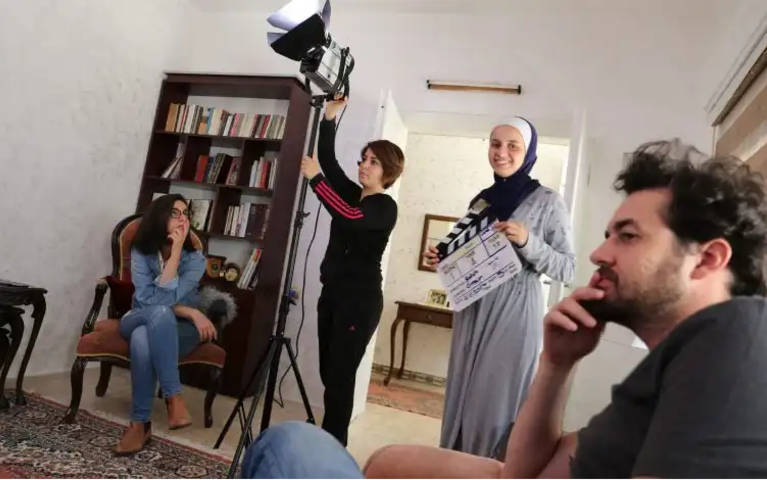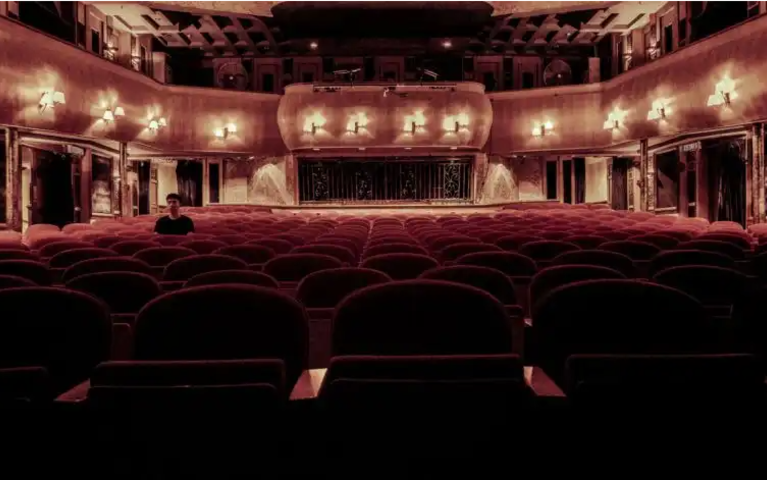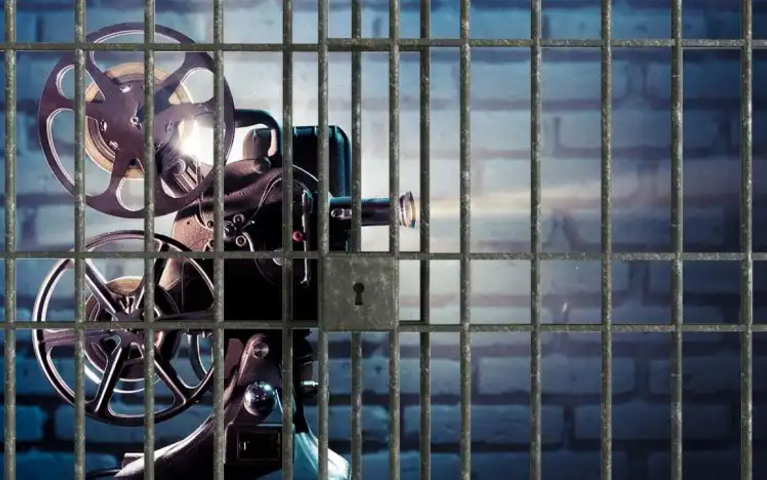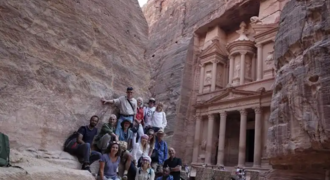Start Telling Your Story Right
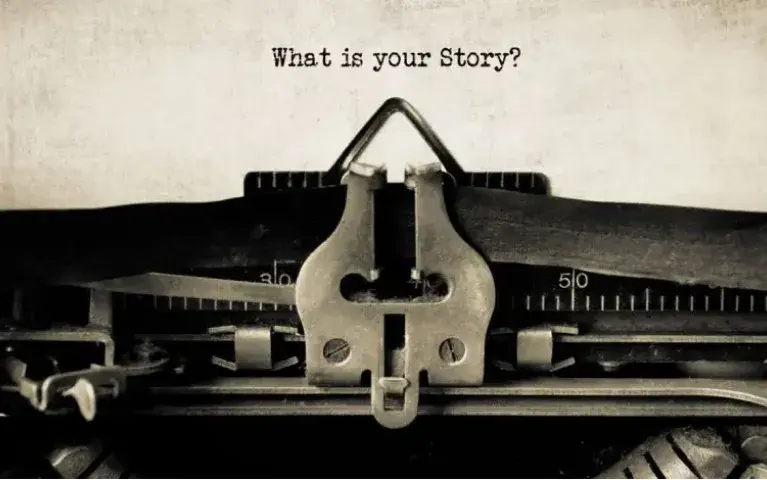
Home quarantine. Pandemic. Social distancing. Remote working… Terms that are now synonymous with our daily lives since mid-March. It took me several days to overcome the withdrawal symptoms of a sudden interruption in the daily routine. After adjusting to the new confinement circumstances, I decided to use the compulsory hiatus to catch up on several personal projects which I have been postponing for months, including books I’ve been trying to read and films I’ve been waiting to watch.
Hours and hours of immersive reading and (binge) watching could sum up a good part of my past weeks at home. It felt like a great way to appreciate amazing storytelling again and again and how it can entertain, educate and enrich us as human beings. It also acted as a powerful reminder to value the importance of good storytelling and to contemplate a filmmaker’s responsibility to write good stories for the screen. It was inevitable for me to link that simple yet powerful notion with the stories coming out of our part of the world.
And that’s where story editing and script development come in as key factors of a film’s journey towards its content’s maturity.
Film development: what it is, why it’s important and why it’s being overlooked
Starting from inception, working through countless orbits of writing and rewriting leading up to a locked script, a film’s development process enables the story to blossom: characters come to life, dialogue sounds real, plot elements attractively intertwine and every component beautifully embodies the story in well-crafted scenes. It is this exciting, multi-stage creative process that lays a solid foundation for the film’s narrative, allowing the author to convey in the best manner the story they want to share.
Despite discovering more and more good film projects coming out of Jordan and the Arab World, I’m still coming across a great number of projects that clearly have undergone little or no development – short and feature-length films alike. Some would already be finished products, which rushed into production without developing their screenplays…
I believe the main reason for this major oversight on the part of filmmakers would be a general underestimation of the importance of the creative development process and, consequently, of the severe repercussions of a poorly developed film. A film whose screenplay is underdeveloped primarily reflects negatively on the author and their storytelling abilities. In addition, film production is a costly procedure not just in terms of funding, but also in terms of time and effort invested and it is quite disappointing to see all these resources wasted on a film whose screenplay has been deprived from further development.
This is why up-and-coming filmmakers need to start telling their stories right and to do so, their projects have to undergo proper creative development by using story editing and script development and acknowledging their value and effectiveness.
Story editing and script development to help guide the process
Essentially, story editing and script development are rewrites of an existing treatment or screenplay which are meant to improve, polish and refine story elements including characterization, dialogue, pace, plot, structure and other aspects. The former, story editing, is focused primarily on the genesis and evolution of the story and keeps track of its genealogy while the latter, script development, also delves into all details of the screenplay as well as the story.
A direct way to receive story editing and script development would be from story editors/script consultants who review the screenplay, identify strengths and weaknesses, provide constructive feedback on one-on-one basis to help the filmmaker take the screenplay to its next better version. It is important for filmmakers to find the right story editor and/or script consultant for their projects and therefore, it is recommended to do some research before choosing them.
Another way would be by participating in screenplay development labs. The process differs from one lab to another and many nowadays favor working in small groups under the guidance of a mentor, a process which invites participating filmmakers, in addition to receiving feedback from the mentor, to work with each other as well and discover/exchange about each other’s projects.
It is important to underline that everyone providing feedback on a project will have an opinion, so filmmakers going through the process must learn not to drown in all the notes coming their way, something that takes both practice and a thick skin. They must never lose sight of the original story and trust their instincts about the notes and comments that sound right for their story and forgo the ones that aren’t – their intention as authors becomes the compass leading them as they go through each round of development.
Successful screenwriting is frequently a collaborative job and it is by undergoing story editing and script development that a screenplay could reach a solid draft, ultimately turning into the locked version.
Where to start and how to move forward
The development process nonetheless must start from the filmmakers themselves where they must first review, assess and criticize their own work to cut away the dead weight and all that isn’t working, ensuring that they are loyal at all times to the original story they wanted to tell. Revising the work is an ongoing process and although it may be painful at first, filmmakers will be glad they took the time to properly convey their vision and interpret it in written form. Sharing a decent version of the treatment/screenplay with a few trusted friends is also something that helps get a fresh viewpoint on the project and receive constructive criticism to help achieve progress in the next draft.
Filmmakers also need to identify the best development fit for their project: individual counseling with script consultants, attaching writers or co-writers, participating in a screenplay development lab, seeking personal advice from more advanced scriptwriters, etc. A combination of these is also common BUT they should beware of overworking (or in this case overdeveloping) their projects, something that could be confusing and harmful rather than beneficial as the project would encounter fatigue and could end up somewhere very different from what was originally intended, or simply lose its spirit and essence.
Another important aspect in regard to development is that it is a process that takes time. Filmmakers must therefore allocate the necessary development time for their projects and not disregard nor rush it since it will be the base of the film that will ultimately head into production and post-production.
On a final note
A film’s development phase is really a beautiful place for filmmakers to be in and my advice to them would be to relish in creating and structuring their stories and screenplays. It is a limitless, creative process to be enjoyed, not dreaded.
Once emerging filmmakers acknowledge that development and its guiding tools should become an essential part of their project’s journey, only then will they start telling their stories right for the wide audience.
*Deema Azar is a Jordanian film producer and script consultant. She is also co-founder and managing partner at TaleBox, a production and training company based in Amman.

